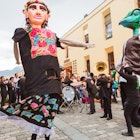
Nov 27, 2024 ÔÇó 7 min read

Feb 25, 2022 ÔÇó 5 min read
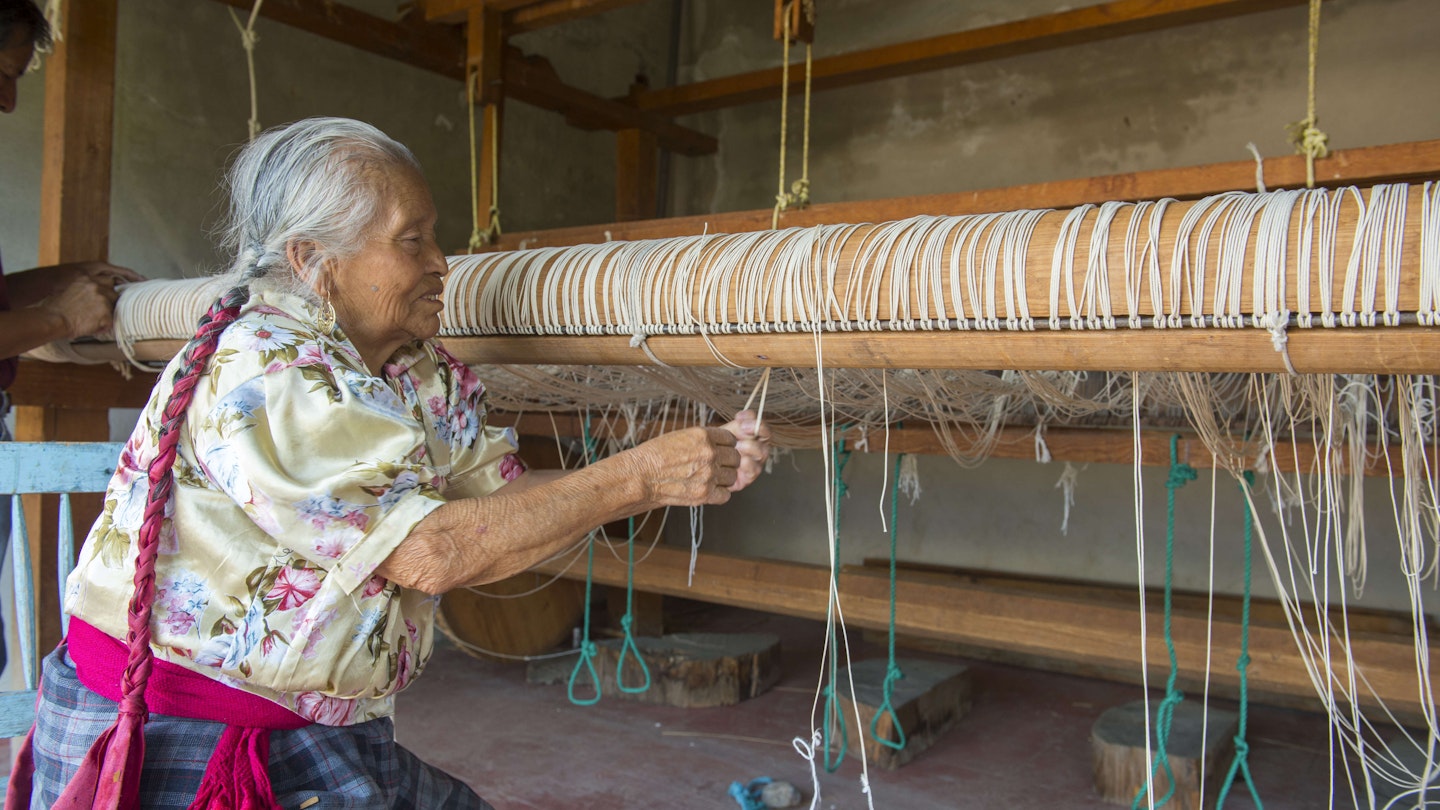
The world-famous weaving center of Teotitl├ín del Valle is only 20 minutes from Oaxaca City ┬® Wolfgang Kaehler / LightRocket via Getty Images
Oaxaca City has plenty to enthrall visitors ÔÇô and day trips from this regional capital and cultural center complement any visit here.
Venturing out beyond the busy city promises a taste of old Oaxaca, as ancient traditions come alive at rustic mezcal distilleries, spirited artisan workshops and indigenous mountain communities that time forgot.
Here are some noteworthy getaways to explore the alluring environs of Oaxaca, all just an easy day trip away from the big city.
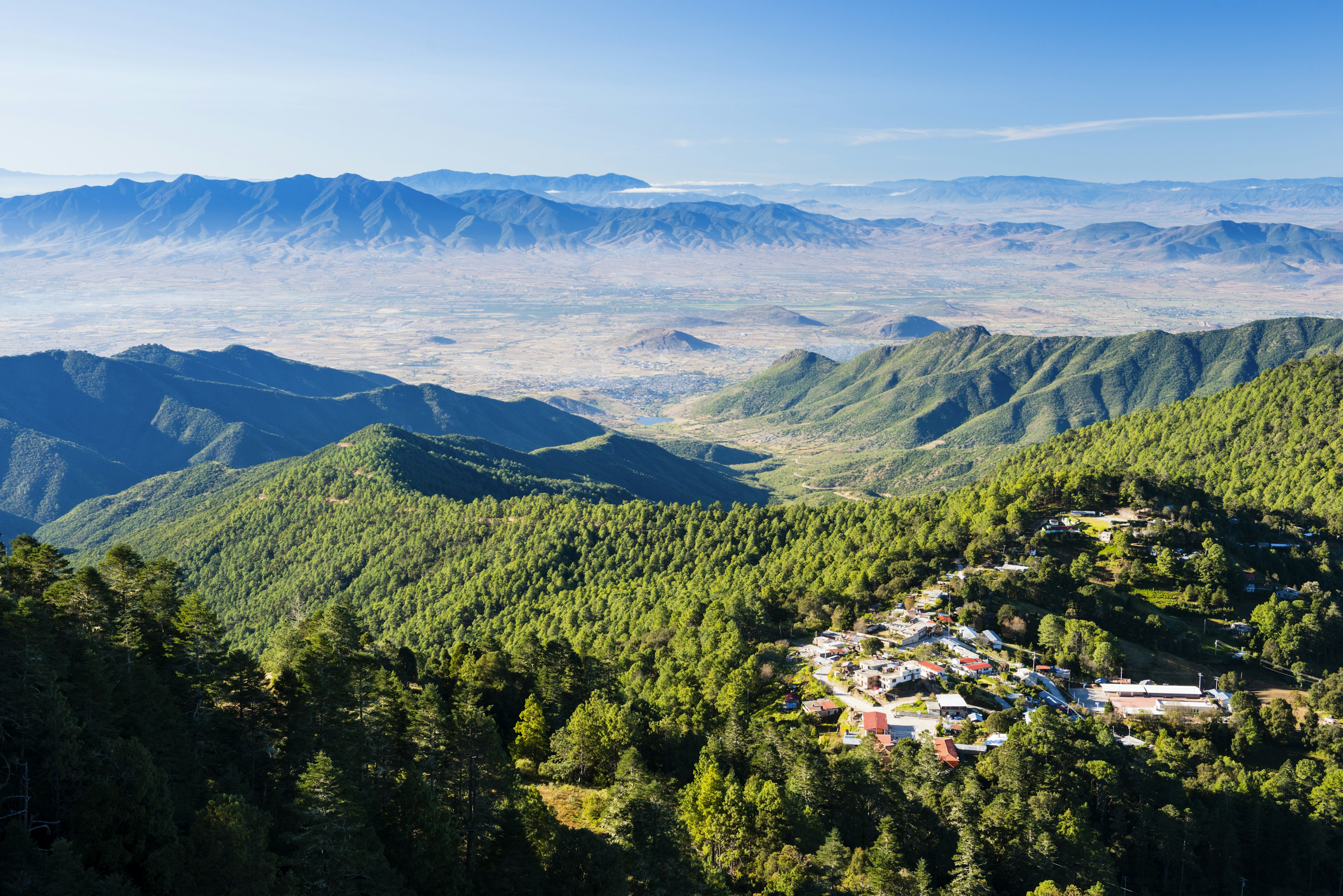
A cluster of eight remote communities tucked away in the Sierra Norte mountains, the Pueblos Mancomunados (Commonwealth of Villages) provide the ideal setting for wilderness adventures on bike, foot or horseback amid magnificent canyons, caves and waterfalls.
Home to 400 bird species and thousands of plant varieties, the cool cloud forest here is best experienced along some 60 miles of trails that connect the welcoming Zapotec towns, all of which have no-frills cabins for rent and roadside cantinas whipping up hearty comfort food.
How to get to the Pueblos Mancomunados from Oaxaca
Driving is the most convenient way to reach the villages. The closest ones, Cuajimoloyas and Benito Ju├írez, lie about 1 hour and 25 minutes northeast of Oaxaca City. Take Highway 190 east, turn left at the OaxacaÔÇôTlacolula Highway and head north. Another option is Oaxaca CityÔÇôbased Expediciones Sierra Norte, which operates shared vans to most of the towns and arranges guided hikes and tours.
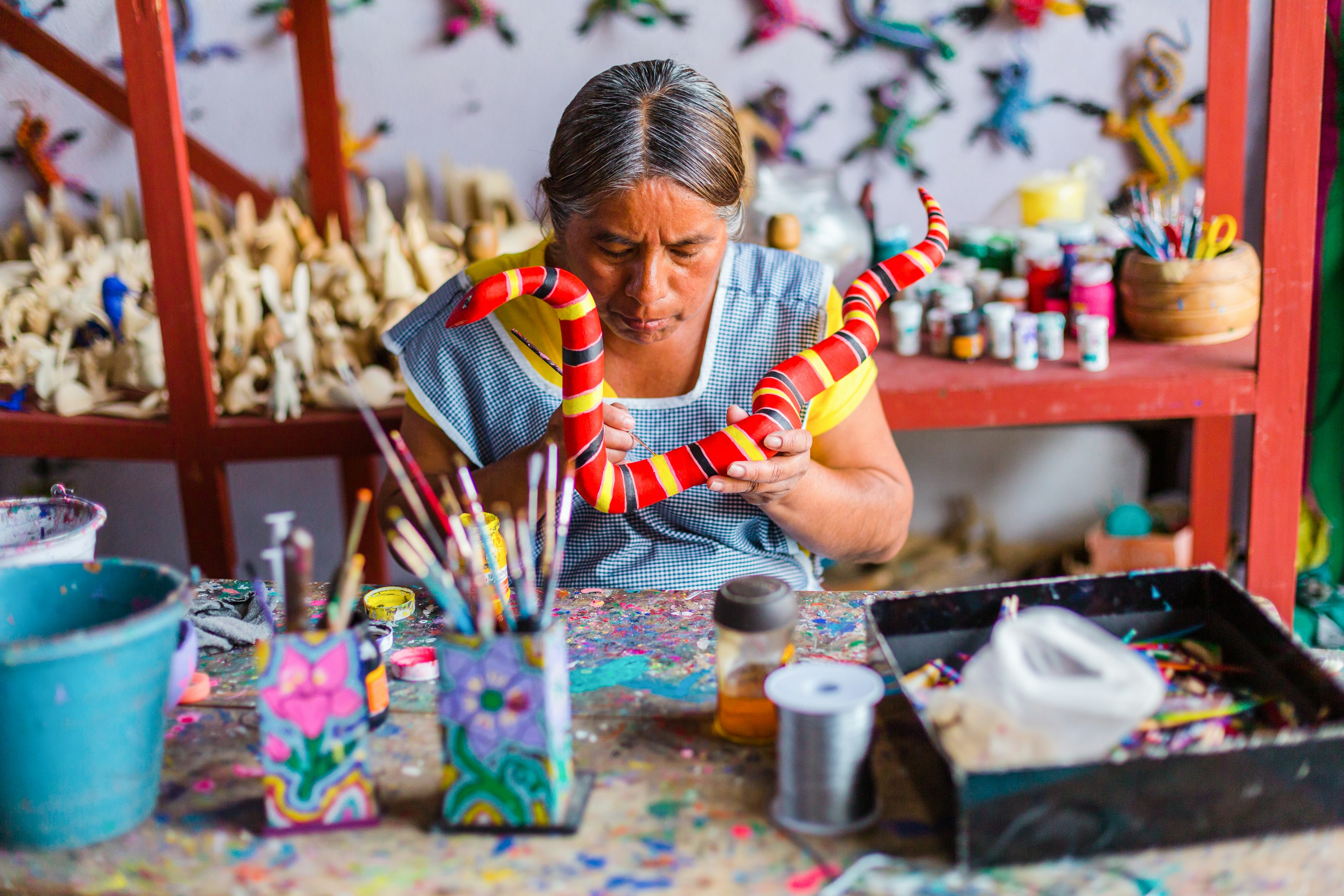
ThereÔÇÖs no shortage of downtown Oaxaca City stores selling barro negro (polished black pottery) and alebrijes (colorful wood-carved animal figures) ÔÇô but nothing beats the experience of seeing these iconic wares taking shape in artisansÔÇÖ studios.
In San Martín Tilcajete, dozens of workshops and homes dedicate themselves exclusively to the production of alebrijes, most famously Jacobo & María Ángeles, where some larger sculptures can take up to 4 years to make. Many of the surreal alebrijes are based on the sacred animals of Zapotec mythology.
On the return to Oaxaca, hit Alfarería Doña Rosa (after 4pm) in San Bartolo Coyotepec for a fascinating demonstration showing how black pottery is burnished with quartz stones to give it its distinctive luster.
How to get to San Martín Tilcajete and San Bartolo Coyotepec from Oaxaca
Both towns are south of the city along Highway 175. Autobuses Halc├│n on Bustamante 606A has frequent bus departures to San Bartolo Coyotepec (30 minutes). Ocotl├ín-bound buses, departing from Bustamante 622, will drop you at the San Mart├¡n Tilcajete (45 minutes) turnoff, where itÔÇÖs about 1 mile to the Jacobo & Mar├¡a ├üngeles factory.
If youÔÇÖre looking to unwind and unplug, head for the majestic mountains of the remote Mixtec village of Santiago Apoala. Wi-fi is spotty at best in these parts ÔÇô but who needs it when you're hiking to a sublime 200-foot waterfall amid deep canyons with ancient rock carvings?
With an early start, Santiago Apoala is doable in a day, though the natural beauty and quiet calm make a strong case for an overnight excursion. Community tour operator Ecoturismo Comunal Yutsa ToÔÇÖon rents affordable riverside cabins and runs guided hiking outings.
How to get to Santiago Apoala from Oaxaca
Santiago Apoala is about 2.5 hours northwest of Oaxaca City and is most conveniently reached by car. Take Highway 135D to the town of Asunci├│n Nochixtl├ín to access the bumpy dirt road to Santiago Apoala. Alternatively, frequent Nochixtl├ín-bound buses depart from OaxacaÔÇÖs first-class bus station; from Nochixtl├ín, hire a local taxi up to the village for about M$350 ($12.50) one way. Also, Oaxaca City-based Tierraventura offers 2-day tours to Santiago Apoala.
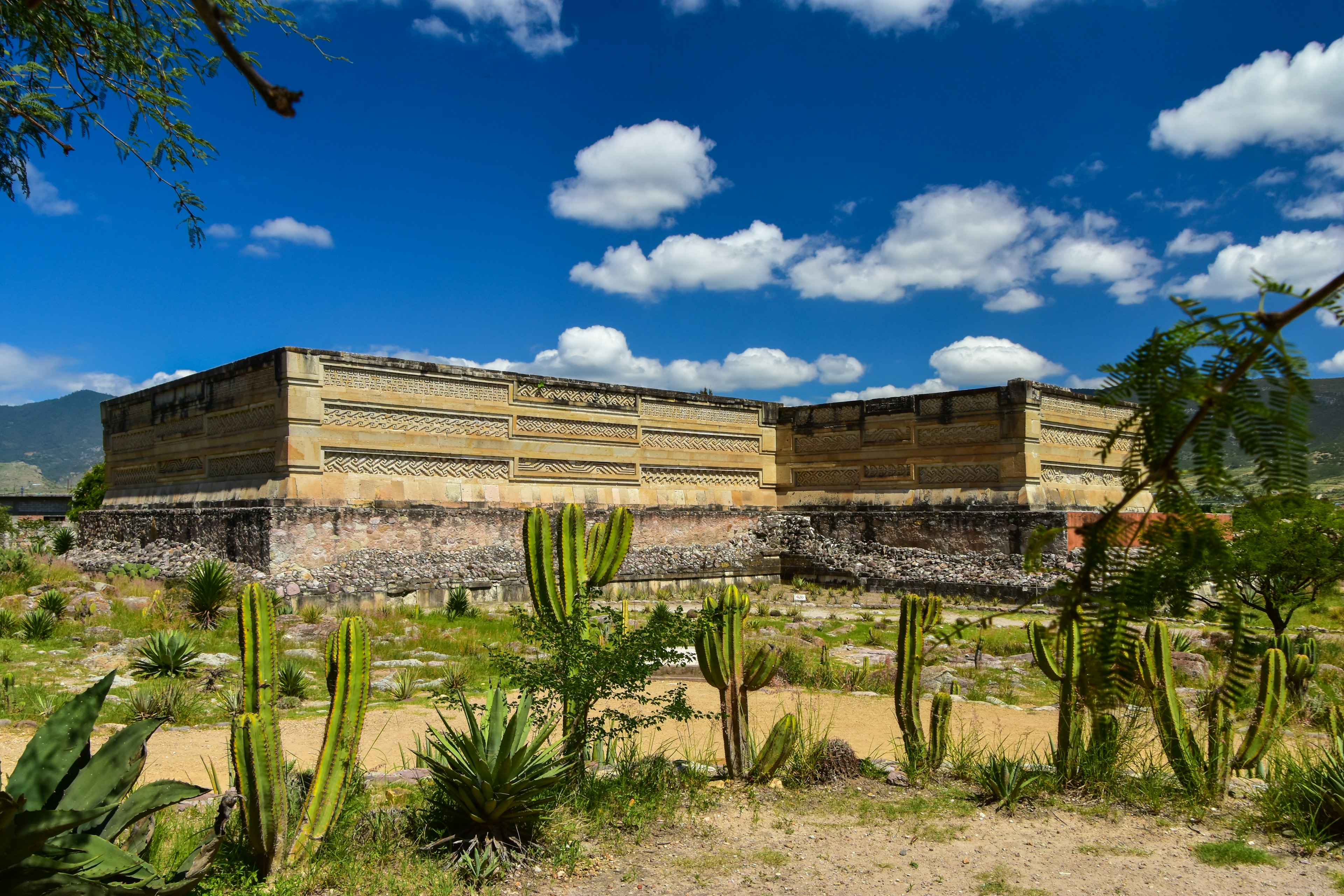
After taking in the spectacular panoramic views of Monte Alb├ín (a must-visit while in Oaxaca City), head to the ancient Zapotec ruins of Mitla for sophisticated stone ÔÇ£mosaicsÔÇØ that are unique in Mexico (and the world). After soaking up the sights, mosey on over to Restaurante Do├▒a Chica for some exquisite mole before heading out to Santiago Matatl├ín, OaxacaÔÇÖs capital of mezcal (a distilled alcoholic agave spirit).
To learn about the production process, swing by craft distillery 3 Mezquites de Don Goyo, in outlying San Baltazar Guelavila, where you can sample and purchase complex mezcals made from wild agaves.
If time permits, squeeze in a visit to Hierve el Agua and take a dip in cliffside mineral springs with expansive views over the sierra. (Just make sure itÔÇÖs open before you head there as Hierve el Agua regularly closes due to long-running political conflicts.)
How to get to Mitla and Santiago Matatlán from Oaxaca
A car is the best option for this trip. Take Highway 190 east to reach Mitla (45 minutes) and Santiago Matatlán (55 minutes). The turnoff for San Baltazar Guelavila is about 8km south of Santiago Matatlán. Hierve el Agua lies about 45 minutes southeast of Mitla (look for the turnoff along Highway 179). Tour operator Experience Agave runs day trips to distilleries in the Santiago Matatlán area and beyond.
Villagers in world-renowned Teotitlán del Valle have been weaving colorful rugs and blankets since pre-Hispanic times, and the craft is still very much alive today. As you make your way to Teotitlán, stop in the town of El Tule to marvel at the Árbol del Tule, a 2,000-year-old Montezuma cypress tree that is said to have the world's widest trunk.
In Teotitlán del Valle, a fairly new community center houses a museum celebrating all things weaving. Tierra Antigua, a restaurant and workshop, leads weaving classes for anyone looking for a more hands-on experience, while cooking courses are available at El Sabor Zapoteco should you like to learn how to prepare classic Zapotec dishes.
How to get to Teotitlan del Valle from Oaxaca
To reach El Tule (20 minutes) and Teotitl├ín del Valle by car, take Highway 190 east. Mitla-bound buses depart frequently from the second-class bus station; theyÔÇÖll usually drop you along the highway. Or simply hail a taxi colectivo (shared taxi) in Oaxaca near the first-class bus station.
You might also like:
Ten places to grab lunch on a budget in Oaxaca
Mezcal three ways: ten great places to get mezcal in Oaxaca
Mexico's best off-the-grid-beaches
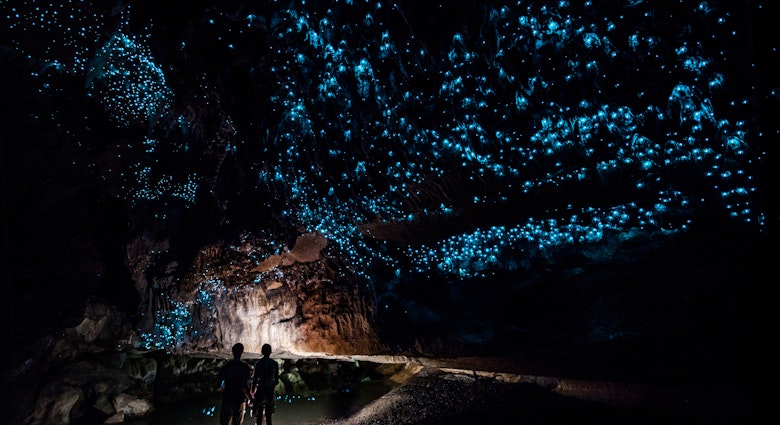

Nov 27, 2024 ÔÇó 7 min read

Oct 25, 2024 ÔÇó 5 min read

Oct 2, 2024 ÔÇó 6 min read


Oct 19, 2023 ÔÇó 5 min read


Apr 23, 2022 ÔÇó 5 min read
